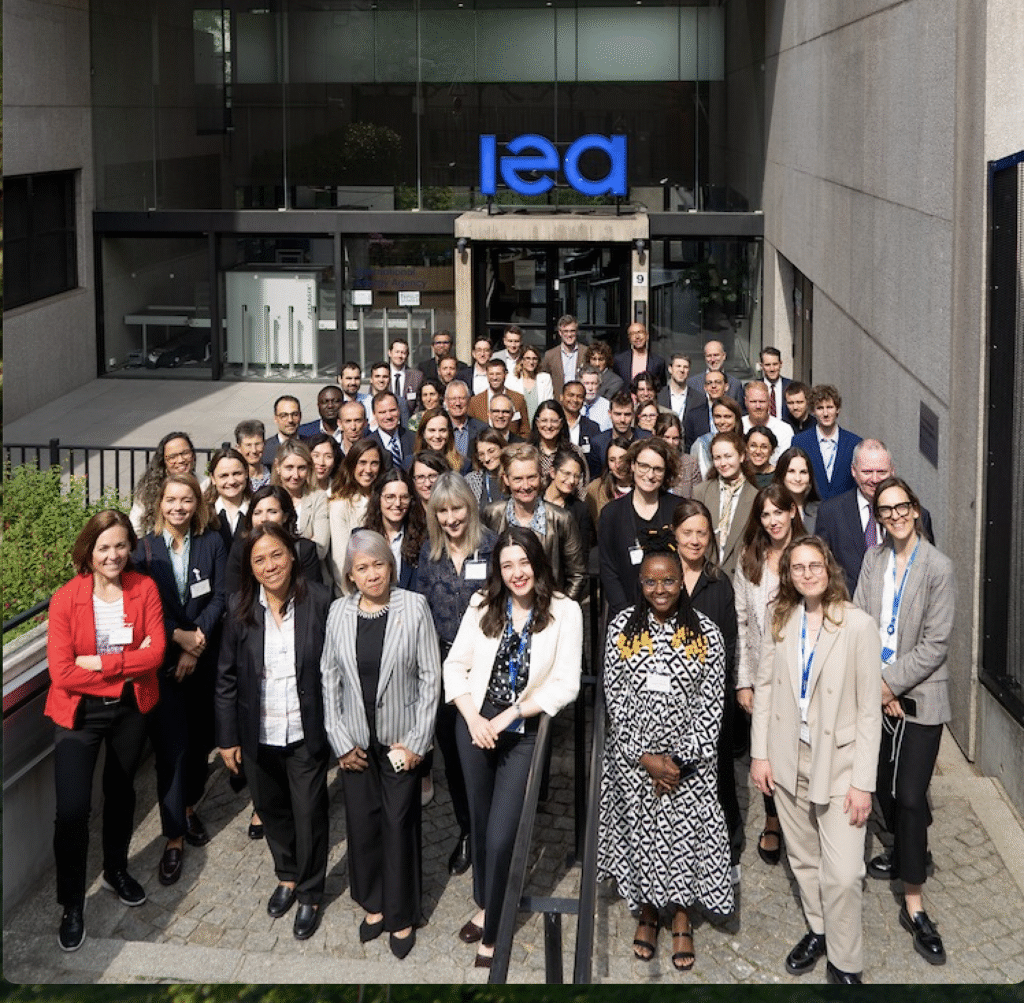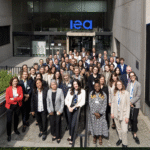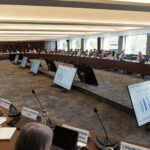15 May, 2025On 14 May the International Energy Agency (IEA), in collaboration with the European Commission and the Clean Energy Ministerial’s Empowering People Initiative, hosted the Future of Energy Skills Workshop at its Paris headquarters. The event brought together over 60 participants from governments, trade unions, international organizations, academia, ILO and energy companies to explore workforce and skills development in the context of the clean energy transition.
IndustriALL actively participated, alongside unions from Denmark and Indonesia, bringing a strong labour voice to the two-day discussions. The workshop focused on advancing a people-centred approach to the energy transition one that ensures the creation of decent jobs, invests in skills development and delivers on the promise of Just Transition for all workers.
“Workers must not be seen as passive recipients of change but as active agents and essential enablers of the transition. Their role, skills, wellbeing and inclusion are fundamental pillars for achieving a sustainable, equitable and effective energy transformation,”
said Diana Junquera Curiel, IndustriALL director for energy and Just Transition.
The workshop addressed critical challenges including skills mismatches, the need for better data to inform workforce planning and the fragmentation of education and training systems. Speakers from Brazil, the Philippines and Denmark shared examples of local initiatives that link vocational training to real employment opportunities. Trade unions stressed that training systems must be co-designed with workers, responsive to labour market realities and backed by strong public investment.
In dedicated sessions on Just Transition, participants acknowledged that many fossil fuel-reliant regions are experiencing job losses without adequate support for reskilling or community revitalization. IndustriALL emphasized that transitions must be negotiated, not imposed and must guarantee the protection of labour rights and decent work throughout the supply chain.
The final session of the workshop brought forward multi-stakeholder perspectives from Chile’s goverment, Indonesia’s trade union, the energy company Electricidade de Portugal (EdP) and the European Skills Alliance. These case studies demonstrated both the progress made and the gaps that remain. Indonesia’s union representative highlighted the urgent need to protect the 6 million workers at risk of displacement due to the energy shift, while the representative from the Chile’s government shared lessons from its legally anchored Just Transition strategy.
Casper Edmonds, head of unit: mining, manufacturing and energy at ILO, highlighted that the energy transition must be rooted in each country’s broader societal vision, combining investment in people and resilient systems and ensuring that those who powered our societies for decades are not left behind—reminding us that Just Transition remains the right strategy, but one we still need to get right.
The IEA concluded the workshop with a commitment to integrate its outcomes into the upcoming World Energy Employment Report and to continue building a global community of practice around inclusive energy workforce development.
“Clean energy transitions are meant to make people’s lives better—by creating decent jobs, career paths, skills and development opportunities for all, everywhere. That’s not a side issue; it’s a central one. We need better data, earlier action and a truly multi-stakeholder approach to ensure that decent work doesn’t just happen by accident, but by design,”
said Brian Motherway, head of energy efficiency and inclusive transitions at the IEA.




